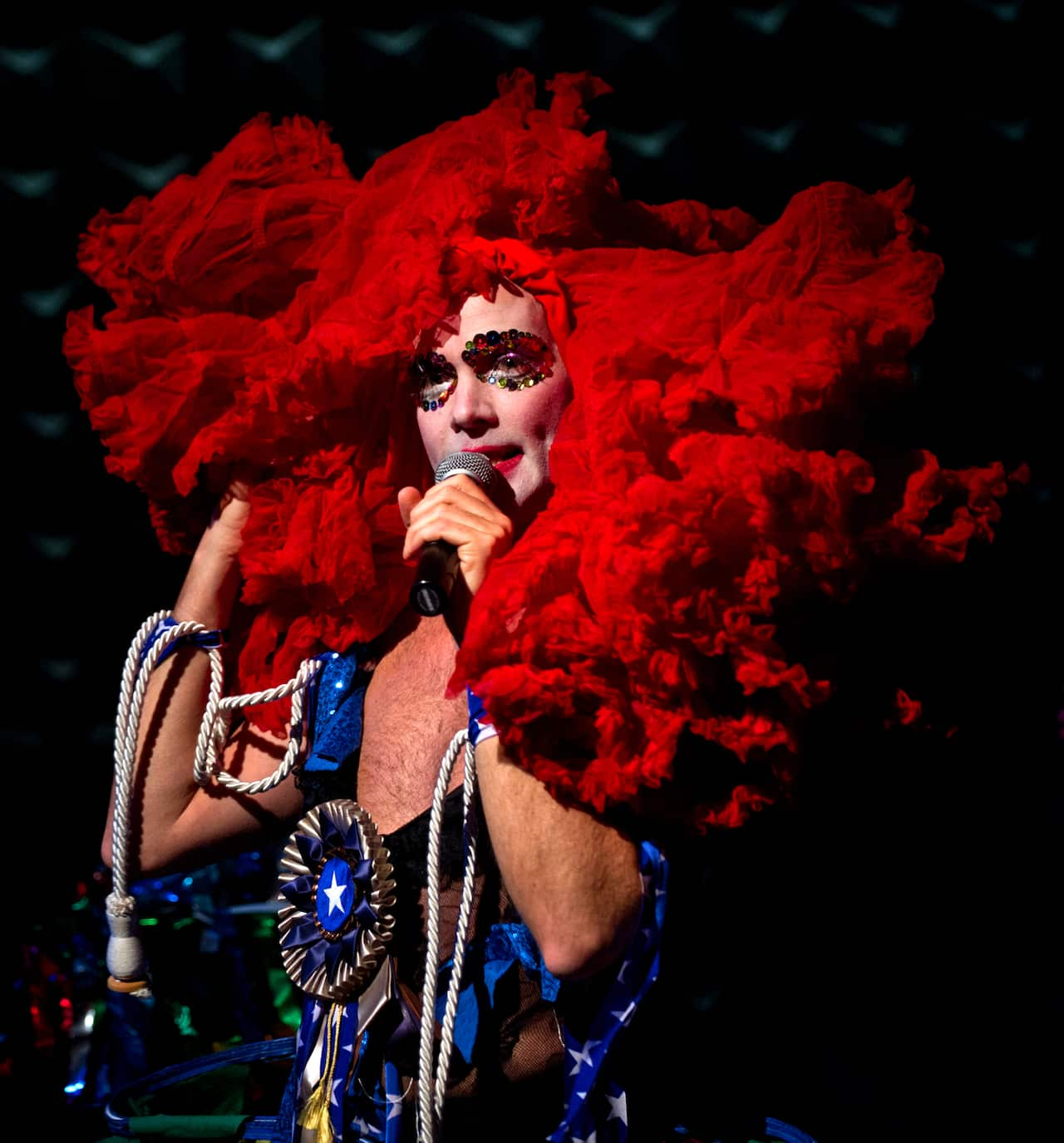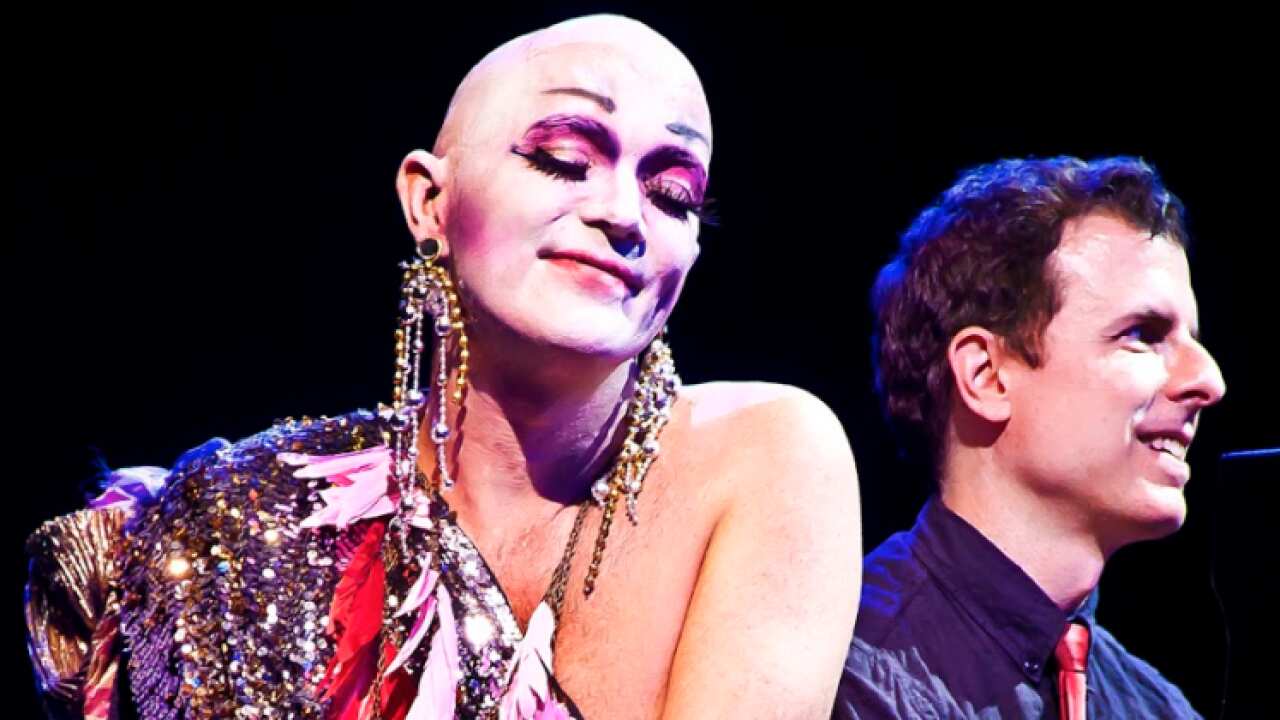They say that history is written by the victors, a concept that’s not only applicable to outright war. Queer existence didn’t blip into reality with the riots at Stonewall, nor even with the imprisonment of Oscar Wilde. Heteronormative, patriarchal structures have ensured that LGBTIQ narratives throughout history have so often been concealed, either by community members for their own safety or by outside forces as an explicit act of silencing.
A loud and proud voice, Taylor Mac - actor, singer-songwriter, playwright, performance artist, director and producer - will not be silenced. “I never think of myself as a teacher,” he says, “but I am a reminder, so I’m just trying to remind the audience of the things that they have dismissed, forgotten or buried, or that other people have buried for them.”
His latest extravaganza, A 24-Decade History of Popular Music, is an epic, Wagner-level work of multi-coloured brilliance that traces American history - illuminating the nation’s queer pioneers - through its popular music prevalent across almost two and half centuries from 1776 until now.
Originally performed in one 24-hour audio-visual blast at Brooklyn’s St. Ann’s Warehouse in New York last year, the 240-plus original and repurposed songs cover the American Revolution, Civil War, WWII, queer and civil rights. Mac will re-stage the show in four six-hour parts during this year’s Melbourne Festival, as well as hosting the opening and closing parties.
“There’s an active movement by historians to eradicate us even further,” Mac insists, pointing to the shutting down of discussion around the sexuality of President Lincoln. “You know, they say, ‘oh well, the word homosexual wasn’t invented back then, so he couldn’t have been gay.’ He was married to Mary Todd, ‘so he couldn’t have been gay.’ And yes, he slept with that man in his bed and he cuddled with him, and we know this from his letters, ‘but that’s something that all men did back then’.”
Laughing incredulously and exasperatedly, Mac adds, “It’s so frustrating. God, you can’t even give us the love butter that’s there?”
Born in 1973, he grew up in Stockton, California, a rough town where an openly homosexual life wasn’t on the cards and where Walt Whitman was taught in school, but with no reference to his homosexuality. Mac didn’t encounter another gay man until he and a friend attended an AIDS march in San Francisco in 1987.
“I’d never met an out homosexual before and so the first time I ever saw [one] was thousands of them all at the same time,” Mac says. “It planted a seed, as it were, and I think that most of my work throughout my career has been about trying to re-enact that in some metaphorical way.”

While often that seed was germinated subconsciously, Mac says with 24-Hour Decade he cultivated it consciously. “I wanted to make a show that was about community being built as a result of falling apart.”
Mac has written the love butter back into our shared history. “I always think of identity as subplot, so I’m talking about communities being built as a result of being torn apart, but the contextualisation is that I’m a queer, so I’m telling it from a queer perspective. So one of the things I’m doing is hunting throughout our history for the queers, where are they and how can they help us tell the story?”
Even when the slice of American history is heteronormatively skewed, the very act of Mac’s telling it changes its nature. “I’m doing it through a queer lens, so that makes it queer.”
Music has a way of holding us together. “It’s like a time machine, singing a song,” Mac says. “Even if we do it in another style, the fact it was written back in 1836, it instantly takes you there because it’s part of the DNA of that time. It takes you there in a way that a piece of furniture might not, because it gets inside of us and it kind of vibrates. We feel like we are sharing DNA from that time, which in fact we are.”
Part of this bedazzling act of time travel is wrapped up in the magnificent costume work of Mac’s close friend and regular collaborator Machine Dazzle, who has produced a staggering new look for every song sung. The show also features a small army of more than 100 collaborators both local and international, including choirs, acrobats and musicians.
“Our show is so big and so full of so many different kinds of people, and the audience is an essential character,” Mac says. “You can’t get to the journey’s end without the audience. They really determine whether or not, or how the show works and what happens.”
On this epic scale, I joke that Mac’s return to Australia for the Melbourne Festival – after a pit stop in San Francisco where his young mind was once rewritten – sounds like the sort of logistical beast more usually encountered on a Madonna tour.
“I don’t know,” Mac laughs, “she might not even have that many people?” Can I quote him as saying he’s bigger than Madonna then? “Dear god, NEVAH bigger than Madonna,” he retorts, slipping into a Blanche-like southern drawl. “ The worst sort of thing that could ever happen to a human being would be being bigger than Madonna.”
The Melbourne Festival runs from October 4-22. Book tickets to see Taylor Mac here. For more info on Mac, check his website.

